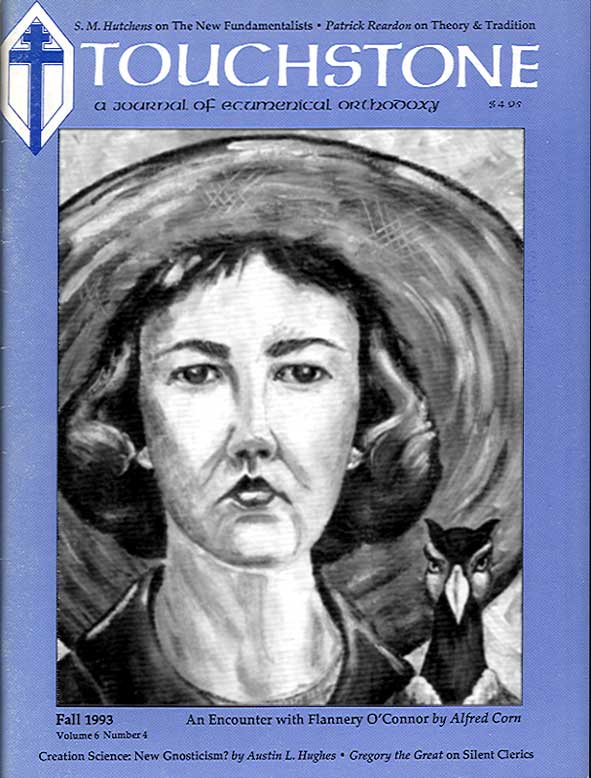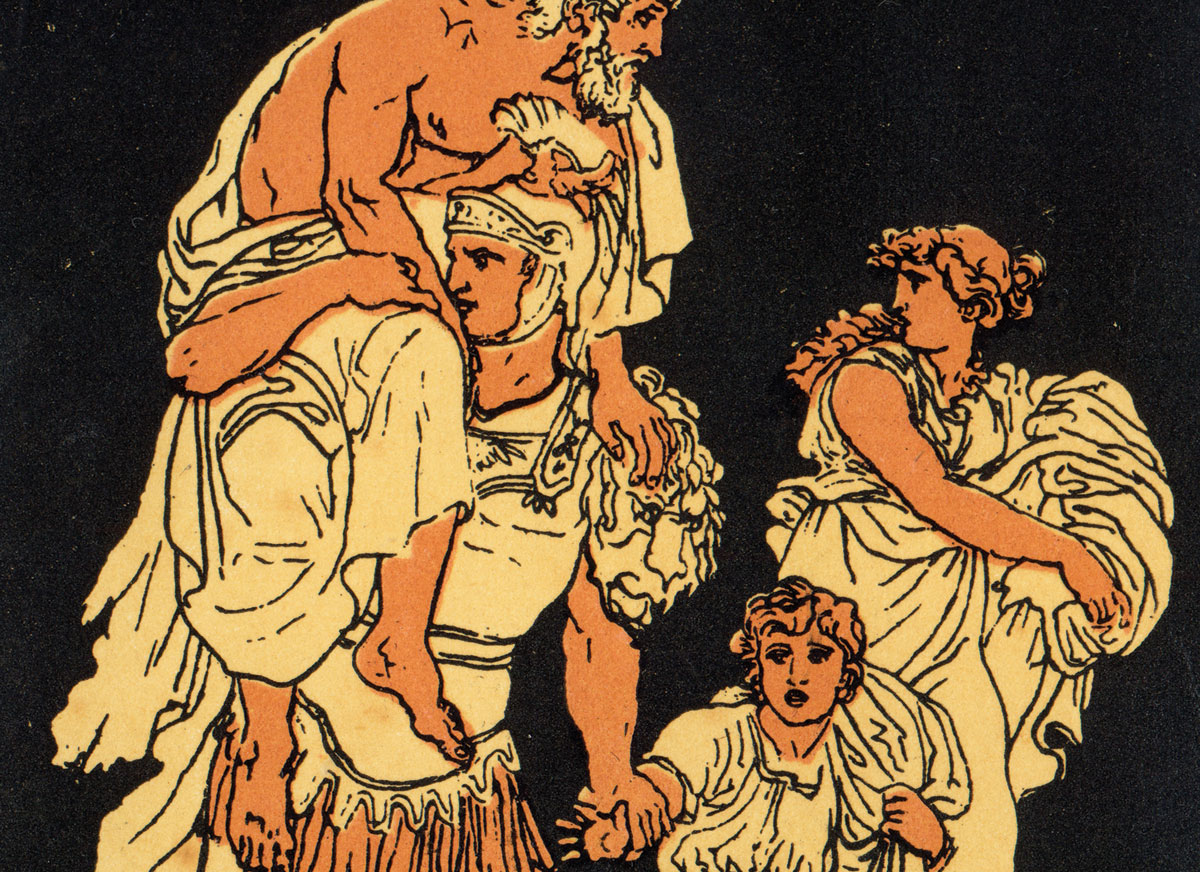Theory & Tradition
by Patrick Henry Reardon
Many of our current cultural fault lines, whether in the Church or in society at large, are best regarded, I believe, as lying between tradition and theory. Put simply, there are those who go along doing the things the way they have always been done, and those who have a new idea about how things should be done. I understand tradition here as inherited practice, and theory as any abstract body of thought, not based on inherited practice, but directed towards future practice.
Present discussion about “politically correct” language may be taken to illustrate the conflict between tradition and theory. Certain inherited conventions in our speech, some of them hoary with age, are currently defined on purely ideological grounds. Theory challenges tradition. The use of the word “man” to designate a member of the human race may serve as an example. Whatever its use in tradition, argues the theorist, “man” is a masculine designation and as such cannot be inclusive of human beings indiscriminately. This argument is entirely a priori; it can summon to its support no empirical evidence from linguistic history. It is the bold defiance of a tradition by a theory.
The proponent of tradition, for his part, will respond that the English word “man” is only one of a good number of masculine words used to designate a member of the human race. He will appeal to empirical evidence, drawing attention to the Hebrew adam, the Greek anthropos, the Latin homo, and two dozen other examples of masculine nouns that refer to human beings as such but may also, in context, refer to the male of the species. The traditional does not invoke a theory but only the testimony of inherited practice.
The traditionalist is generally a practical, plain sort of person, the kind disposed to “leave well enough alone.” Sheer temperament often will prompt him to make Proverbs 22:28 his favorite biblical verse: “Remove not the ancient landmark which thy fathers have set.” The theorist, on the other hand, the person who is arguing for the change and hoping to get the landmark moved, is more often an academic or some sort of reformer, at least in the sense of having an idea that he wants to share. He is necessarily an elitist of sorts. He believes that he is in possession of an insight which, though it has never been attempted before, may yet fulfill the Psalmist’s hope of crowning the year with goodness and causing our paths to drop fatness, or is at least worth the try.
Now the idea is widespread that practice should be carefully thought through ahead of time; that is, theory should precede practice. This idea serves the cause of the theorist, of course, but it is itself highly theoretical.
Democratic & Elitist
The theorist and the traditionalist differ, not only in their styles of argument, but also in their respectively political assumptions. Tradition tends to be democratic in the etymological sense of representing the demos, the population at large. Theory, by contrast, tends to be oligarchical; it is the enlightened few endeavoring to reach the benighted many. The traditionalist, in his struggle to prevail in society (if, indeed, he bothers to struggle at all), enjoys the considerable leverage arising from the majority’s reluctance to change the established patterns and habits with which they are comfortable. The theorist, not having that edge, must resort to political pressures brought strategically to bear at certain advantageous points.
The academic world, the domain of books and laboratories that sometimes seems to exist solely for the cultivation of experiment and theory, most often is such a point. Make no mistake. The theorist really does have the theories. That is to say, he is an idea-man and is at home on the campus and at the publishing house. He does his homework. He has thought the thing through and worked it out. The bugle then summons him forth from the library. His well-marshaled arguments bristle in their serried ranks; his eager footnotes snort and paw the ground.
It is always the privilege of the theorist, moreover, to choose the field and procedure of the engagement. So he will have both the ideological and tactical jump on the traditionalist, whom he normally catches off-guard. Hilaire Belloc observed that “it always takes some time for the old established thing on its defense to wake up. An answer to attack upon tradition can always be found; but the traditional thing, being general, popular and having become based upon routine turned to a kind of instinct, having long lost the habit of analysis, takes some time in finding the answer.1
In the present struggle about “politically correct” language, to stick with our example, the theorist has already, in the main, seized control of the campus and publishing industry. So, if the traditionalist, emulating those stale precedents established by Shakespeare, Johnson, and just about everybody else who spoke English prior to 1983 or so, wants to say “man” and thereby mean “human being,” he may do so down at the barber shop or the bar. He will be in some trouble, however, if he tries it in his sociology class or his forthcoming article in a scholarly journal, or heaven help us, the next meeting of the liturgical commission. That real estate is already occupied by the theorist. And nobody, not Abraham Lincoln, could deliver or publish a speech today that said anything even remotely resembling “our fathers brought forth” without risking the charge of gross insensitivity, if not sexual harassment.
Patrick Henry Reardon is pastor emeritus of All Saints Antiochian Orthodox Church in Chicago, Illinois, and the author of numerous books, including, most recently, Out of Step with God: Orthodox Christian Reflections on the Book of Numbers (Ancient Faith Publishing, 2019).
bulk subscriptions
Order Touchstone subscriptions in bulk and save $10 per sub! Each subscription includes 6 issues of Touchstone plus full online access to touchstonemag.com—including archives, videos, and pdf downloads of recent issues for only $29.95 each! Great for churches or study groups.
Transactions will be processed on a secure server.
more from the online archives
calling all readers
Please Donate
"There are magazines worth reading but few worth saving . . . Touchstone is just such a magazine."
—Alice von Hildebrand
"Here we do not concede one square millimeter of territory to falsehood, folly, contemporary sentimentality, or fashion. We speak the truth, and let God be our judge. . . . Touchstone is the one committedly Christian conservative journal."
—Anthony Esolen, Touchstone senior editor











